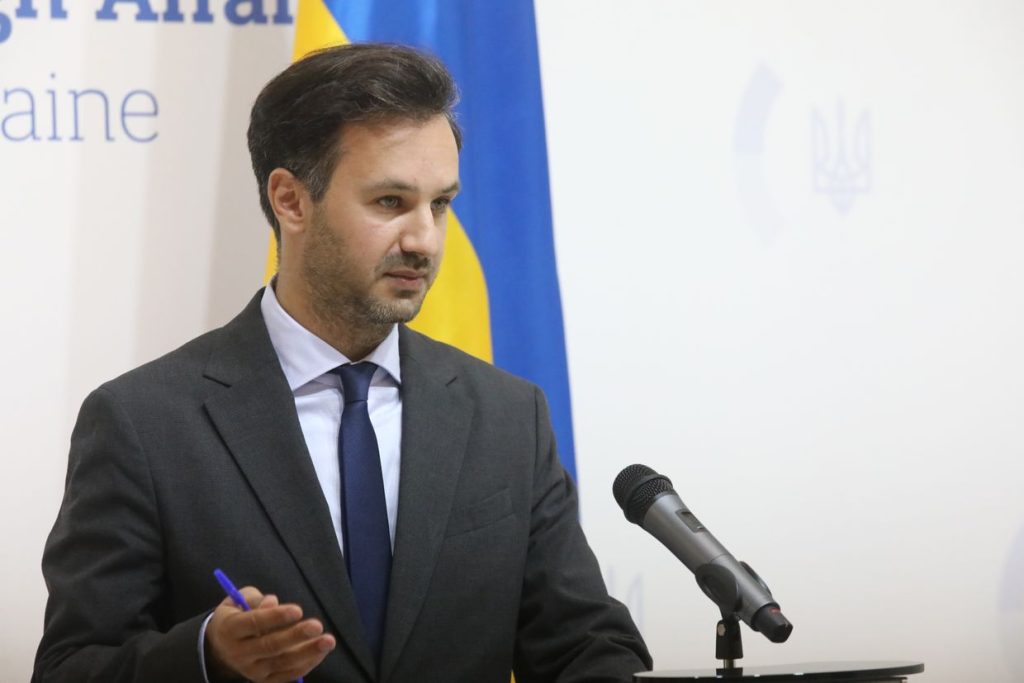Ukraine Denies Corruption Allegations Against Military Aid
The Ukrainian Foreign Ministry has categorically denied allegations of corruption regarding the use of U.S. military aid. Spokesperson Heorhii Tykhyi issued a strong rebuttal on social media on February 11, addressing claims made by far-right American commentator Tucker Carlson. Carlson had suggested that weapons sent to Ukraine were being resold on the black market, even accusing the Ukrainian military of selling arms "to drug cartels." Tykhyi dismissed these assertions as baseless and harmful, stating, "This is a lie." He emphasized that multiple U.S. inspections have found no evidence of misuse of military aid, adding that every piece of equipment delivered to Ukraine is closely tracked and monitored by independent mechanisms.
Tucker Carlson’s Claims Lack Evidence and Credibility
Tucker Carlson, a controversial figure known for his far-right views, has faced widespread criticism for spreading unverified claims about Ukraine. His recent allegations about the diversion of U.S. weapons to the black market were made without any supporting evidence. This is not the first time Carlson has drawn attention for his stance on Ukraine. He has repeatedly echoed Kremlin talking points, casting doubt on Western support for Ukraine and suggesting that the U.S. is overextending itself in the conflict. Carlson’s approach has been called into question by both Ukrainian officials and independent observers, who argue that his rhetoric undermines international efforts to support Ukraine against Russian aggression.
Ukraine’s Commitment to Transparency in Military Aid
Heorhii Tykhyi underscored Ukraine’s commitment to transparency in its handling of military aid. He explained that every piece of equipment delivered to Ukraine is meticulously tracked, with independent mechanisms in place to monitor the use of supplied weapons. These measures are designed to ensure accountability and prevent misuse of the aid provided by the U.S. and other allies. Tykhyi’s comments reflect the Ukrainian government’s efforts to maintain trust with its international partners, many of whom have stepped up their support for Ukraine in the face of ongoing Russian attacks.
Tucker Carlson’s Ties to the Kremlin
Tucker Carlson’s closeness to the Kremlin has been a subject of scrutiny for some time. In 2024, he famously interviewed Russian President Vladimir Putin and Russian Foreign Minister Sergey Lavrov, giving them a platform to present their perspectives on the conflict in Ukraine. Carlson’s actions have led to accusations that he is amplifying Russian propaganda, a charge that has been leveled by President Volodymyr Zelensky himself. Zelensky has been vocal in his criticism of Carlson, stating that the commentator "fully repeats the words of Putin" and suggesting that he works in the interests of the Russian leader. These criticisms highlight the broader concerns about Carlson’s role in shaping public opinion and his potential influence on U.S. foreign policy.
The Influence of Donald Trump and His Allies
Tucker Carlson’s ties to former U.S. President Donald Trump have also come under scrutiny. Trump, who has hinted at a return to the White House, has been a vocal supporter of Carlson and shares some of his views on Ukraine and Russia. The broader Trump circle has faced questions about its connections to Russia, with some allies drawing attention for their financial and political ties to pro-Kremlin figures. For example, Kash Patel, Trump’s nominee to lead the FBI, reportedly received $25,000 in 2024 from a film company run by Igor Lopatonok, a filmmaker with close links to the Kremlin. These developments have raised concerns about the potential for a shift in U.S. policy toward Russia and Ukraine if Trump returns to power.
Zelensky Slams Carlson for Spreading Russian Propaganda
President Volodymyr Zelensky has been unequivocal in his criticism of Tucker Carlson, accusing him of spreading Russian propaganda. In an interview with Piers Morgan, Zelensky referred to Carlson as a "blogger or journalist, whatever he wants to call himself," and asserted that Carlson’s rhetoric aligns closely with that of Vladimir Putin. "He works for Putin," Zelensky said, emphasizing the danger of Carlson’s commentary in shaping public perception of the conflict. Zelensky’s comments reflect the broader frustration within the Ukrainian government over the spread of misinformation and the potential for it to undermine international support for Ukraine’s cause.












